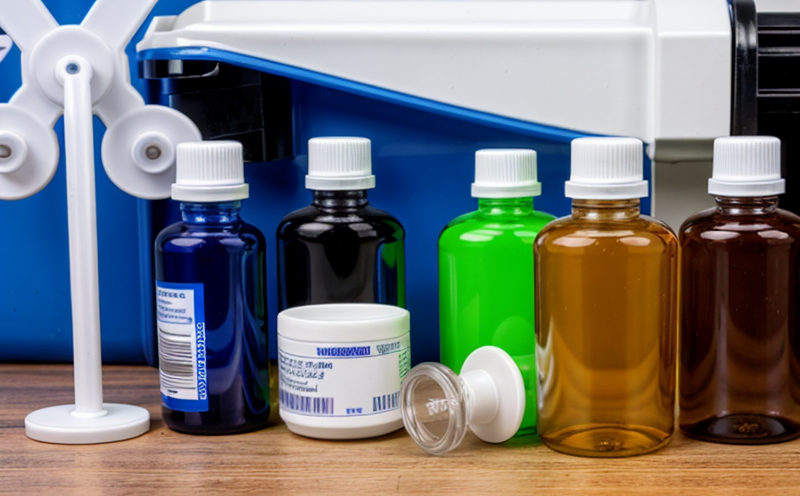ISO 10993 Cytotoxicity Assessment of Pharmaceutical Waste
The ISO 10993-18 standard is a cornerstone in the biocompatibility evaluation process, ensuring that medical and pharmaceutical waste does not pose a cytotoxic risk to human tissues. This service addresses the specific cytotoxicity testing requirements for pharmaceutical waste, which includes materials used in the production of drugs, packaging materials, and any other components that come into contact with patients or users.
The cytotoxicity test evaluates whether the waste material can cause cell death or impair cell function when exposed to a biological system. This is critical because even small quantities of pharmaceutical waste could potentially enter the human body during disposal processes, posing health risks if the materials are not biocompatible. The testing process involves exposing cells to extracts or leachates from the waste and monitoring for any adverse effects such as cell death, reduced viability, or changes in cellular function.
The ISO 10993-18 standard provides detailed procedures for preparing test solutions, culturing cells, and conducting assays. It also specifies acceptance criteria that must be met to ensure the waste is safe for disposal. The testing typically involves using cell lines such as Vero cells or L929 fibroblasts, which are widely accepted in biocompatibility assessments.
The cytotoxicity test is a critical step in the overall evaluation of medical and pharmaceutical waste. It complements other tests such as irritation, sensitization, and subchronic toxicity studies to provide a comprehensive understanding of the potential risks associated with the waste material. The results of this test are essential for regulatory compliance and can influence decisions on waste disposal methods and patient safety.
Our laboratory adheres strictly to ISO 10993-18 guidelines, ensuring that the cytotoxicity assessment is conducted in a rigorous and reproducible manner. We use state-of-the-art equipment and follow standardized protocols to ensure accurate results. Our team of experts ensures that all test parameters are carefully controlled, from the preparation of the waste extracts to the monitoring of cell viability.
By choosing our service, clients benefit from expert knowledge, advanced instrumentation, and a commitment to regulatory compliance. This ensures that pharmaceutical waste is properly evaluated for cytotoxicity, safeguarding public health and ensuring environmental responsibility.
Why It Matters
The significance of cytotoxicity testing in the context of medical and pharmaceutical waste cannot be overstated. Ensuring that waste materials are non-toxic is crucial for several reasons:
- Public Health: Pharmaceutical waste, if improperly managed, can enter the environment or food chain, potentially exposing individuals to harmful substances.
- Regulatory Compliance: Compliance with international standards like ISO 10993 is essential for maintaining a reputable reputation and avoiding legal penalties.
- Patient Safety: Ensuring that waste materials are not cytotoxic helps protect patients from potential health risks during the manufacturing process or after disposal.
In addition to these benefits, cytotoxicity testing plays a vital role in the development and approval of new pharmaceutical products. By identifying potentially harmful materials early in the production cycle, manufacturers can make necessary adjustments to ensure that their waste is safe for disposal.
Applied Standards
The ISO 10993 series of standards provides comprehensive guidelines for ensuring the biocompatibility of materials used in medical devices and pharmaceutical products. Specifically, ISO 10993-18 focuses on cytotoxicity testing and is widely recognized as a key standard in this field.
Our laboratory adheres strictly to these international standards, ensuring that all cytotoxicity assessments are conducted in accordance with the latest best practices. By following ISO 10993-18 guidelines, we provide clients with reliable, reproducible results that meet both regulatory and industry requirements.
The standard specifies detailed procedures for preparing test solutions, culturing cells, and conducting assays to evaluate cytotoxic effects. It also sets out clear acceptance criteria that must be met to ensure the waste material is safe for disposal.
Quality and Reliability Assurance
- Accurate Instrumentation: We use high-precision equipment designed specifically for cytotoxicity testing, ensuring accurate measurements and reliable results.
- Standard Operating Procedures (SOPs): Our laboratory follows rigorous SOPs that are in line with ISO 10993 guidelines to ensure consistent quality.
- Certified Staff: Our team consists of experienced professionals who are trained in the latest testing techniques and best practices.
- Regular Calibration: All equipment is regularly calibrated to maintain accuracy and precision.
- Quality Control Samples: We include quality control samples in every batch of tests to ensure consistency and reliability.





